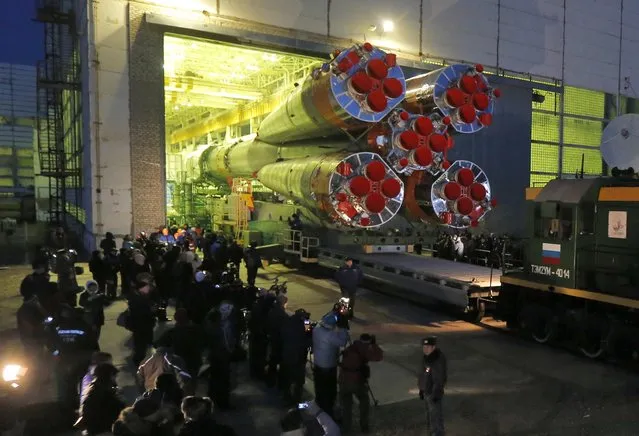
Russia's Soyuz-FG booster rocket with the space capsule Soyuz TMA-16M that will carry a new crew to the International Space Station (ISS) is transported from the hangar to the launch pad in Russian leased Baikonur cosmodrome, Kazakhstan, Wednesday, March 25, 2015. The new Soyuz mission is scheduled for Saturday, March 28. (Photo by Dmitry Lovetsky/AP Photo)
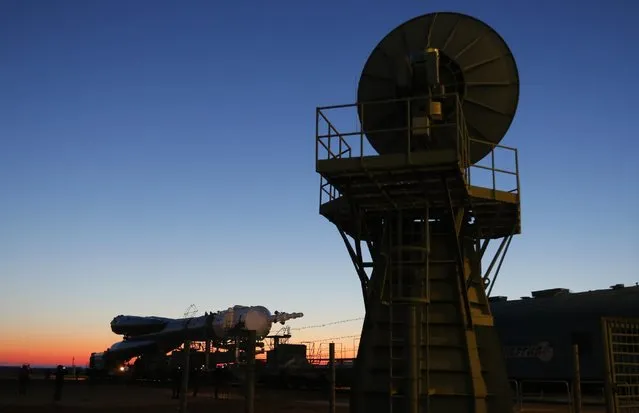
Russia's Soyuz-FG booster rocket with the space capsule Soyuz TMA-16M that will carry a new crew to the International Space Station (ISS) is transported from a hangar to the launch pad in Russian leased Baikonur cosmodrome, Kazakhstan, Wednesday, March 25, 2015. (Photo by Dmitry Lovetsky/AP Photo)
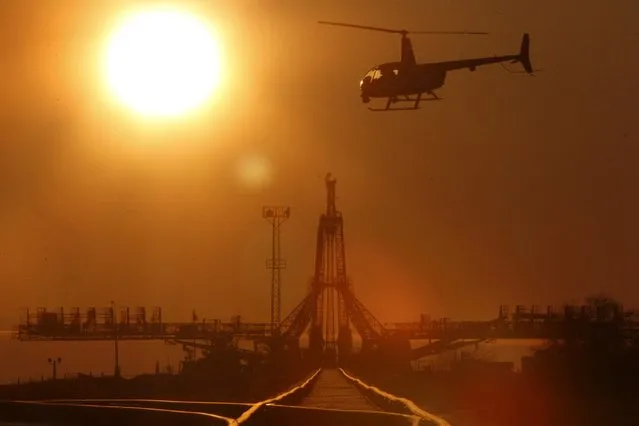
The Soyuz TMA-16M spacecraft is set on its launch pad at the Baikonur cosmodrome March 25, 2015. (Photo by Maxim Zmeyev/Reuters)
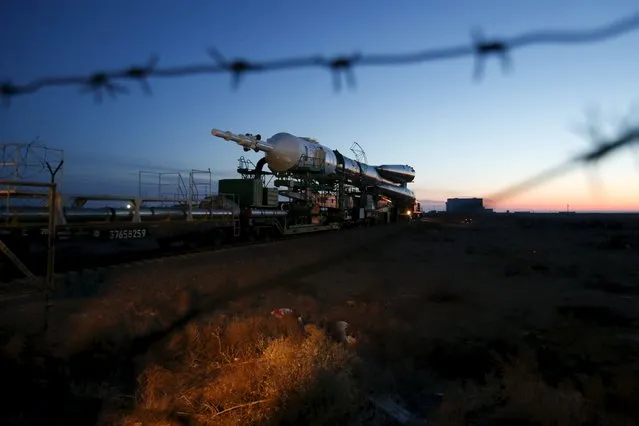
The Soyuz TMA-16M spacecraft is transported to its launch pad at the Baikonur cosmodrome March 25, 2015. (Photo by Maxim Zmeyev/Reuters)
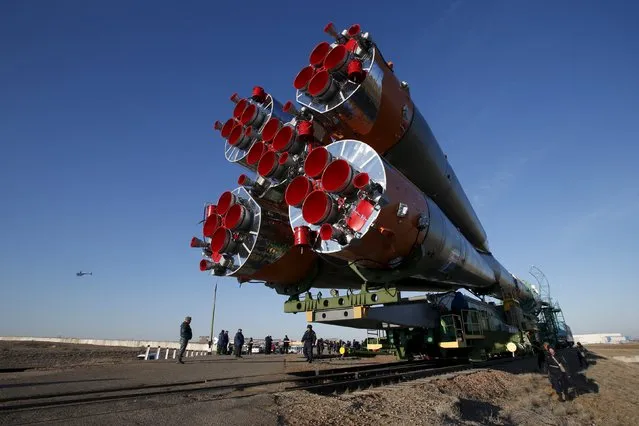
The Soyuz TMA-16M spacecraft is transported to its launch pad at the Baikonur cosmodrome March 25, 2015. The Soyuz is scheduled to blast off from Kazakhstan on March 28, with Russian cosmonauts Mikhail Kornienko, Gennady Padalka and NASA astronaut Scott Kelly to the International Space Station. (Photo by Maxim Zmeyev/Reuters)
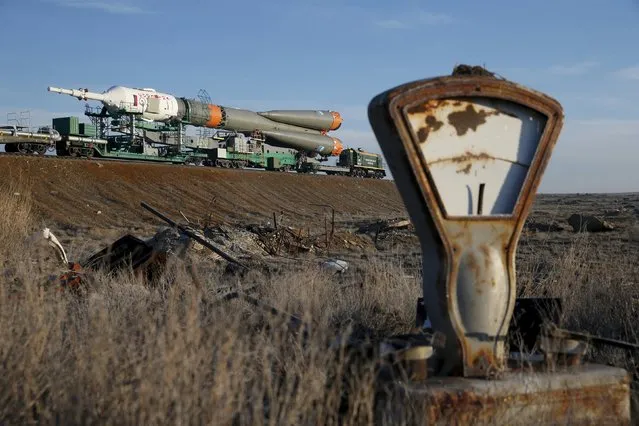
The Soyuz TMA-16M spacecraft is transported to its launch pad at the Baikonur cosmodrome March 25, 2015. (Photo by Maxim Zmeyev/Reuters)
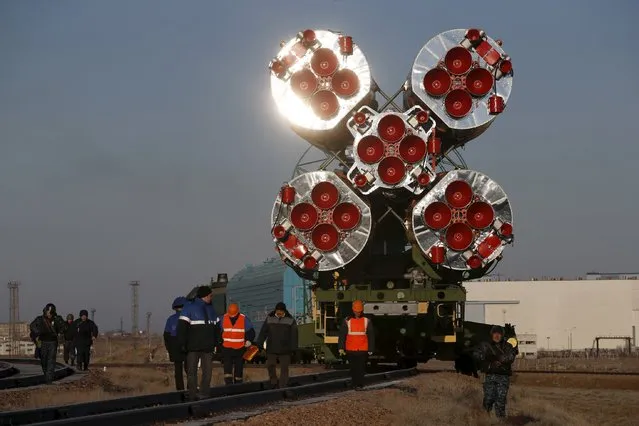
The Soyuz TMA-16M spacecraft is transported to its launch pad at the Baikonur cosmodrome March 25, 2015. (Photo by Maxim Zmeyev/Reuters)
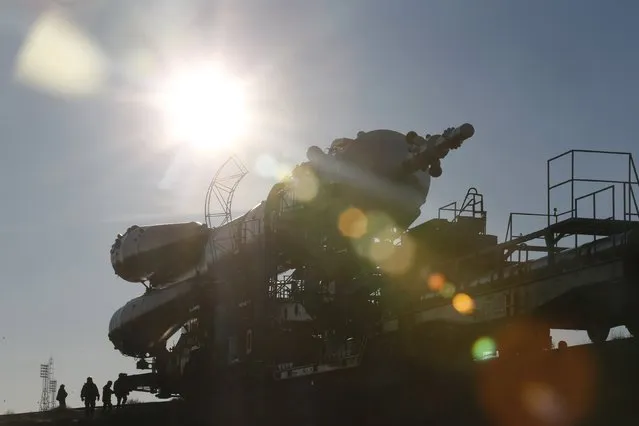
The Soyuz TMA-16M spacecraft is transported to its launch pad at the Baikonur cosmodrome March 25, 2015. (Photo by Maxim Zmeyev/Reuters)
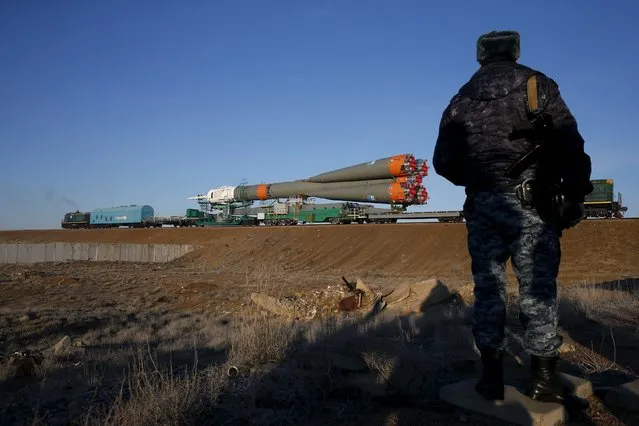
The Soyuz TMA-16M spacecraft is transported to its launch pad at the Baikonur cosmodrome March 25, 2015. (Photo by Maxim Zmeyev/Reuters)
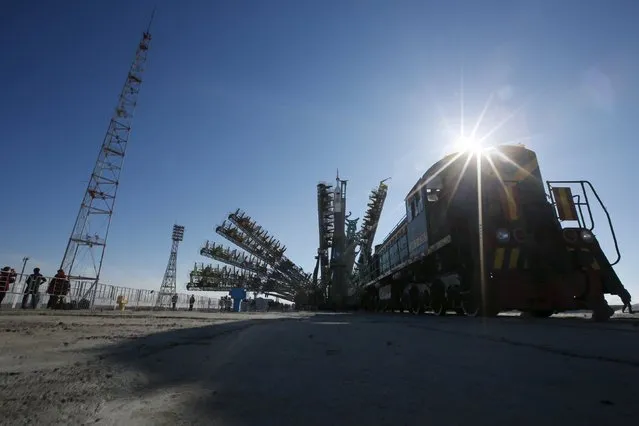
The Soyuz TMA-16M spacecraft is lifted to its launch pad at the Baikonur cosmodrome March 25, 2015. (Photo by Maxim Zmeyev/Reuters)
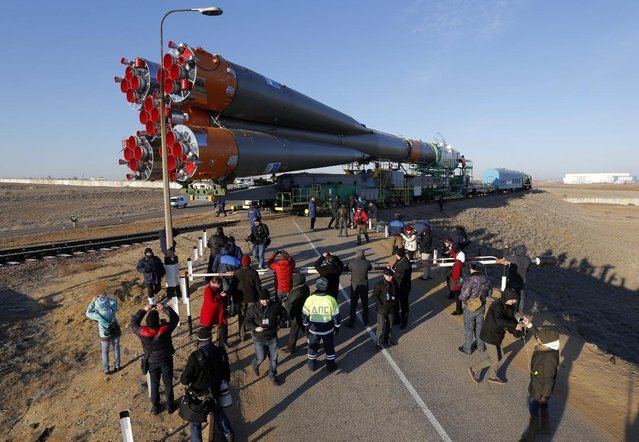
Russia's Soyuz-FG booster rocket with the space capsule Soyuz TMA-16M that will carry a new crew to the International Space Station (ISS) is transported from the hangar to the launch pad in Russian leased Baikonur cosmodrome, Kazakhstan, Wednesday, March 25, 2015. (Photo by Dmitry Lovetsky/AP Photo)
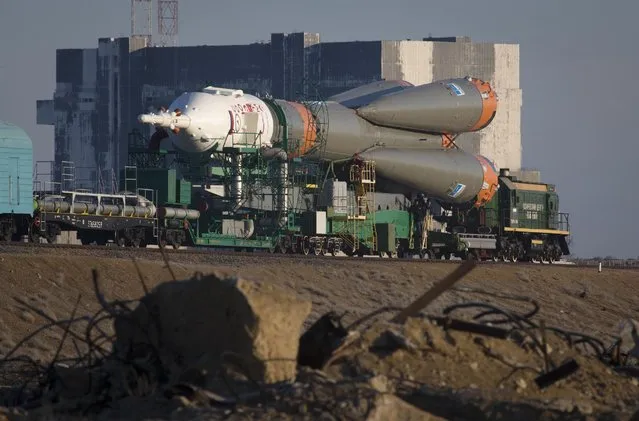
Russia's Soyuz-FG booster rocket with the space capsule Soyuz TMA-16M that will carry a new crew to the International Space Station (ISS) is transported from a hangar to the launch pad in Russian leased Baikonur cosmodrome, Kazakhstan, Wednesday, March 25, 2015. (Photo by Dmitry Lovetsky/AP Photo)
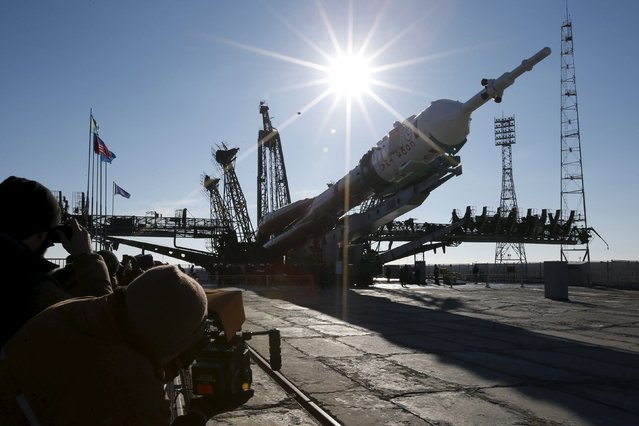
The Soyuz TMA-16M spacecraft is lifted to its launch pad at the Baikonur cosmodrome March 25, 2015. (Photo by Maxim Zmeyev/Reuters)
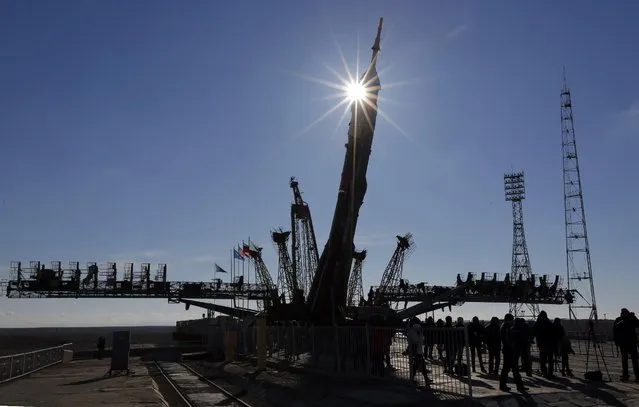
Russia's Soyuz-FG booster rocket with the space capsule Soyuz TMA-16M that will carry a new crew to the International Space Station (ISS) is fixed to the launch pad after arriving from a hangar in Russian leased Baikonur cosmodrome, Kazakhstan, Wednesday, March 25, 2015. (Photo by Dmitry Lovetsky/AP Photo)
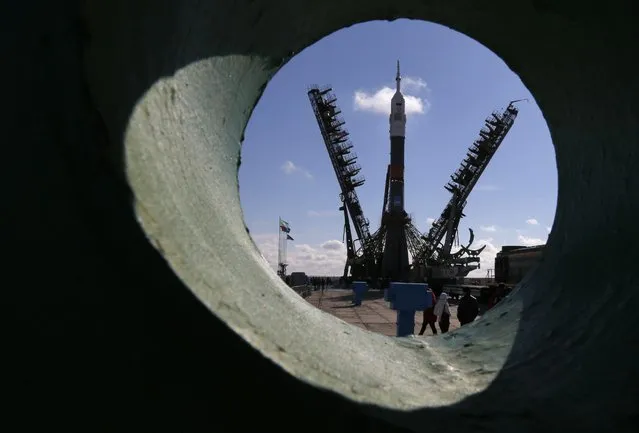
Russia's Soyuz-FG booster rocket with the space capsule Soyuz TMA-16M that will carry a new crew to the International Space Station (ISS) is photographed at the launch pad in Russian leased Baikonur cosmodrome, Kazakhstan, Wednesday, March 25, 2015. (Photo by Dmitry Lovetsky/AP Photo)
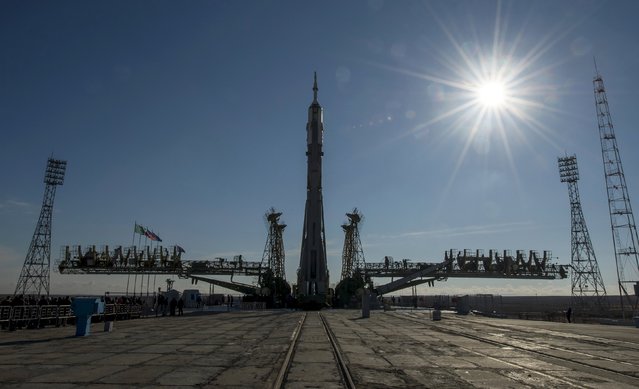
The Soyuz TMA-16M spacecraft is set on its launch pad at the Baikonur cosmodrome in this March 25, 2015 picture provided by NASA. The Soyuz is scheduled to blast off from Kazakhstan on March 28, with Russian cosmonauts Mikhail Kornienko, Gennady Padalka and NASA astronaut Scott Kelly to the International Space Station. (Photo by Bill Ingalls/Reuters/NASA)
26 Mar 2015 12:29:00,
post received
0 comments
